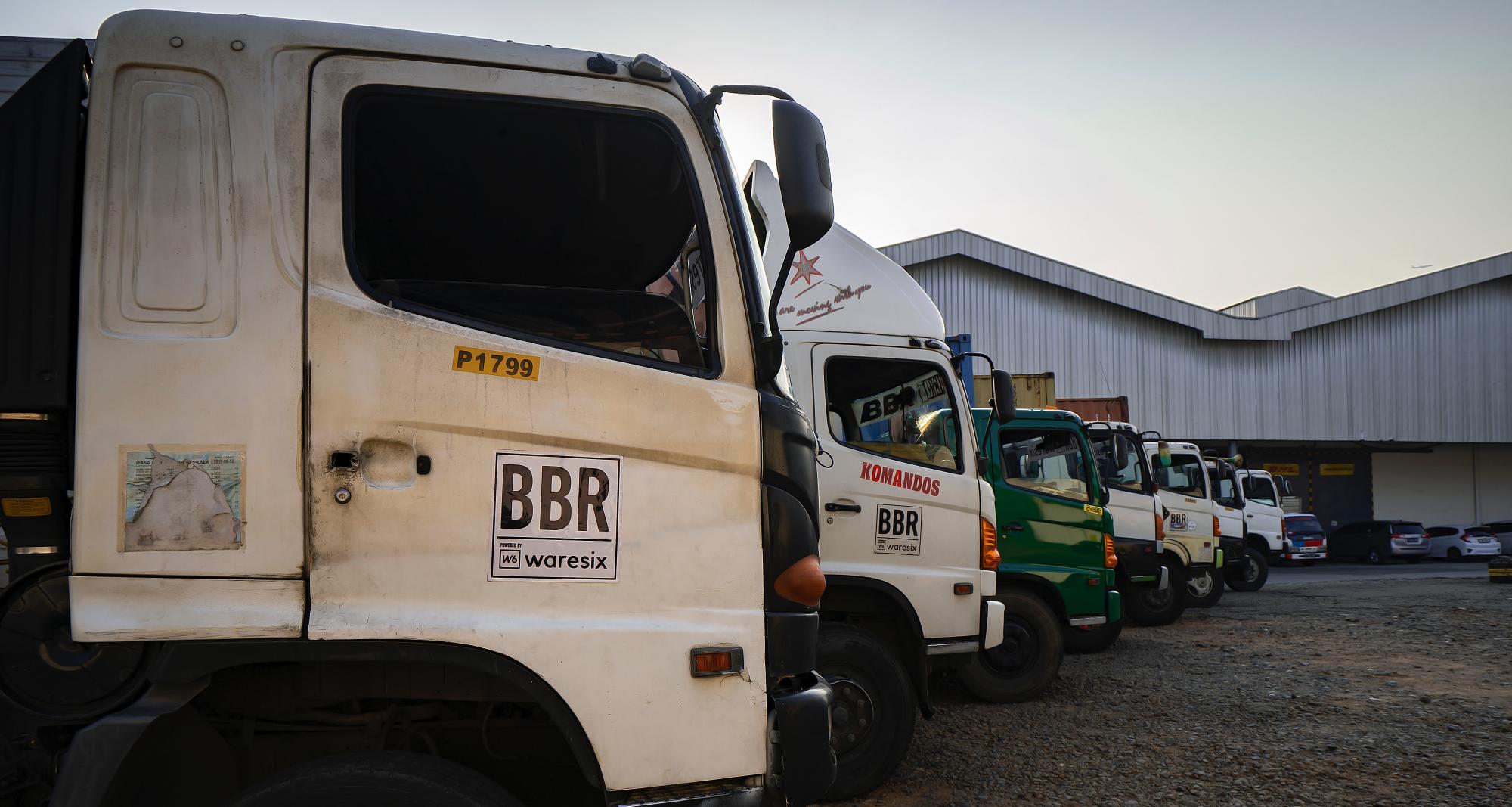Tech Nuggets with Technology: This Blog provides you the content regarding the latest technology which includes gadjets,softwares,laptops,mobiles etc
Thursday, July 4, 2019
France Moves to Make Companies Block Hate Speech Online
Fortnite x Stranger Things Crossover Is Just a Couple of New Skins
PUBG Lite Beta Now in India: Here's Everything You Need to Know
Swiggy, Zomato Directed to Resolve Differences With Offline Players
Samsung Predicts Drop in Q2 Profit on Weak Chip Market
Redmi 7A vs Redmi 6A
A California law went into effect July 1 banning bots from pretending to be real people without disclosure while selling products or influencing votes (Noam Cohen/New Yorker)
Noam Cohen / New Yorker:
A California law went into effect July 1 banning bots from pretending to be real people without disclosure while selling products or influencing votes — When you ask experts how bots influence politics—that is, what specifically these bits of computer code that purport to be human …
Uber Plus driver rewards pilot launched in India
ETtech Top 5: SoftBank's big India bet, Facebook's creator problem & more
Waresix hauls in $14.5M to advance its push to digitize logitics in Indonesia
Waresix, one of a handful of startups aiming to modernize logistics in Indonesia — the world’s fourth most populous country — has pulled in $14.5 million to grow its 18-month-old business.
This new investment, Waresix’s Series A, is led by EV Growth — the growth-stage fund co-run by East Ventures — with participation from SMDV — the investment arm of Indonesia corporation Sinar Mas — and Singapore’s Jungle Ventures. The startup previously raised $1.6 million last year from East Ventures, SMDV and Monk’s Hill Ventures. It closed a seed round in early 2018.
Waresix is aiming to digitize logistics, the business of moving goods from A to B, which it believes is worth a total of $240 billion in Indonesia.
A large part of that is down to the country’s geography. The archipelago officially has over 17,000, but there are five main ones. That necessitates a lot of challenges for logistics, which are said to account for 25-30 percent of GDP — a figure that is typically below five percent in Western markets — while Indonesia barely scraped the top 50 rankings in World Bank’s Logistics Performance Index.
But, as Southeast Asia’s largest economy and the key market for digital growth in the region, that makes this an attractive problem to solve… or, rather, attractive industry to modernize.
Like others in its space worldwide — which include Chinese unicorn Manbang and BlackBuck in Indonesia — Waresix is focused on optimizing logistics by making the process more transparent for clients and more efficient for haulage companies and truckers. That includes removing the chain of ‘middle man’ brokers, who add costs and reduce transparency, and provide a one-stop solution for transportation by land or sea, as well as cold storage and general cargo handling.
As of today, Waresix claims a fleet of more than 20,000 trucks and over 200 warehouses partners across Indonesia. The company said it plans to use this new capital to expand that coverage further. In particular, that’ll include additional land transport options and additional warehouse capacity in tier-two cities and more remote areas. That’s a push that founders Andree Susanto (CEO), Edwin Wibowo (CFO), and Filbert Hansel (CTO) — who met at UC Berkley in the U.S. — believe fits with Indonesia’s own $400 billion commitment to improve national infrastructure and transport.

Waresix trucks
It is also consistent with East Ventures, the long-standing early-stage VC, which has backed a pack of young companies aiming to inject internet smarts into traditional industries in Indonesia. Some of that portfolio includes Warung Pintar, which develops smart street vendor kiosks, Kedai Sayur, which is digitizing street vendors, and Fore Coffee, which draws inspiration from China’s digital-first brand Luckin Coffee, which recently listed in the U.S.
Now with EV Growth, which reached a final close of $200 million thanks to LPs that include SoftBank, the East Ventures has the firepower to write larger checks that go beyond seed and pre-Series A deals as it has done with Waresix.
But the company is far from alone in going after the logistics opportunity in Indonesia. Its rivals include Kargo, which was started by a former Uber Asia exec and is backed by Uber co-founder Travis Kalanick’s 10100 fund among others, and Ritase.
Ritase, which claims to be profitable, closed an $8.5 million Series A this week. It said it has 7,500 trucks and, on the client side, some 500 SMEs and a smattering of well-known global brands. Kargo has kept its metrics quiet, but it is a later arrival on the scene. The startup only came out of stealth in March of this year when it announced a $7.6 million funding round.
PayU, Naspers’ global fintech firm, enters Southeast Asia with acquisition of Red Dot Payment
PayU, the Naspers owned fintech firm that specializes in emerging markets, is broadening its global reach into Southeast Asia after it announced a deal to buy a majority stake in Singapore-based Red Dot Payment.
Naspers is best known for its payments and fintech business in markets like India, Latin America, Africa and Eastern Europe, but now it will enter Southeast Asia, a market with over 600 million consumers and rapidly rising internet access.
PayU plans to tap that potential through Red Dot, an eight-year-old startup founded by finance veterans which offers services that include a payment gateway, e-commerce storefronts and online invoicing across Southeast Asia. PayU said it has acquired “a majority stake” in the business. It did not specify the exact size but it did disclose that the deal values Red Dot at $65 million.
It isn’t clear exactly how much Red Dot had raised from investors overall — its Series B was $5.2 million but the value of prior rounds were not disclosed — but its backers include Japan’s GMO, Wavemaker, Skype co-founder Toivo Annus and MDI Ventures. The company said that that “the majority” of its investors exited through this transaction, but some stakeholders — including CEO Randy Tan — are keeping shares with a view to a later buyout in full.
That’s important for PayU, according to CEO Laurent le Moal, who stressed that the company believes in retaining teams and empowering them through acquisitions, rather than simply buying an asset.
“We have to strike the balance between a solid majority [acquisition] and an opportunity” for founders, he told TechCrunch in an interview.
PayU plans to put “real investment” into the startup, whilst also integrating its services into its ‘Hub’ of services and tech, a stack that is shared with its mesh of global business and was built from its acquisition of Israel’s Zooz. PayU’s India business alone is estimated to be worth $2.5 billion, but its overall business is hard to value but more details emerge of its global business as Naspers lists select entities through an IPO in Europe.
Back to the deal, Tan called it “a marriage made in heaven,” and he also revealed that Red Dot had turned down recent investment and acquisition offers from three other suitors.
“They [PayU] operate globally and have over 300,000 merchants, including Facebook, Google and the kind of clients we aspire to win,” he said.
So why Southeast Asia, and why now?
“We want to build the number one payments company for high growth markets,” le Moal said. “If you look at what the top 10 economies will be in 2030, half are in Southeast Asia and the rest are growth markets we are already in
“We are number one in India, in the biggest markets in Africa, the fastest-growing part of Europe and Latin America, but we have no presence in Southeast Asia,” he continued. “It’s fundamental… you want to go where the consumer growth is.”
The initial focus post-deal is to supercharge the Red Dot business through shared tech, networks and expertise, but, further down the line, de Moal has a vision of going deeper into fintech and financial services to offer products such as consumer credit, as it has done in India.
Such a product launch isn’t likely to happen for another 12 months at least, the PayU CEO said. Before then, there will be a focus on growing Red Dot’s cross-border trade business and developing synergy with its business in other markets, especially India.

PayU CEO Laurent Le Moal said the company is looking to dominate high-growth markets in Southeast Asia following its acquisition of Red Dot Payment
De Moal hinted also that PayU has ambitions to be in Japan and Korea, although he conceded that the exact strategy — which could include organic growth — is still to be defined. We can certainly expect to see an uptick from the company in Southeast Asia and the wider Asian continent.
“There will be an acceleration of investment and M&A,” de Moal said. “It’s just the beginning for us as PayU and Naspers in the region.”
Realme C2 to Go on Sale in India Today, Here's What You Need to Know
TikTok’s spreading fake news, MPs say in House
Samsung says it projects Q2 operating profit of ~$5.5B, beating analyst estimates but down ~56% YoY following weakness in the price and demand of memory chips (Saheli Roy Choudhury/CNBC)
Saheli Roy Choudhury / CNBC:
Samsung says it projects Q2 operating profit of ~$5.5B, beating analyst estimates but down ~56% YoY following weakness in the price and demand of memory chips — KEY POINTS — Samsung Electronics said on Friday that profits for the three months that ended June more than halved …
SC turns down TikTok plea to transfer case from Madras HC
The US' chip export rules enter a 120-day consultation period, requiring the Trump administration to consider input, potentially modify, and enforce the rules (Will Knight/Wired)
Will Knight / Wired : The US' chip export rules enter a 120-day consultation period, requiring the Trump administration to consider i...
-
Jake Offenhartz / Gothamist : Since October, the NYPD has deployed a quadruped robot called Spot to a handful of crime scenes and hostage...
-
Lorena O'Neil / Rolling Stone : A look at the years of warnings about AI from researchers, including several women of color, who say ...